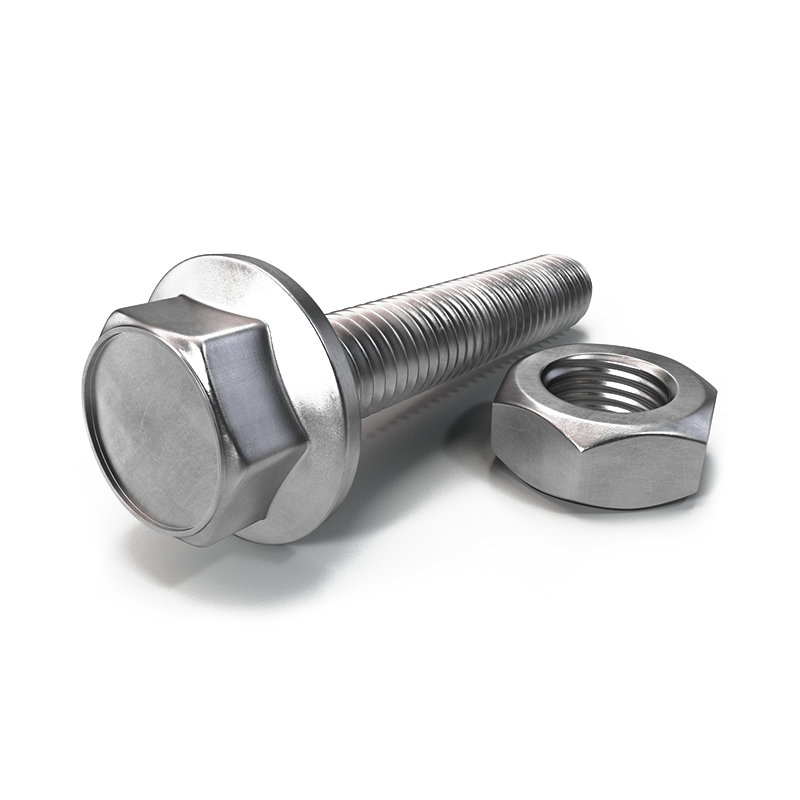Cost Considerations
Lower Cost: Carbon steel is generally less expensive than alloy steel due to its simpler composition and less complex manufacturing processes. If the application does not require the high strength or special properties of alloy steel, carbon steel screws offer a cost-effective solution.
Budget-Conscious Applications: For applications where cost is a significant factor, such as in high-volume, low-stress applications (e.g., furniture assembly, non-critical structural components), carbon steel screws are often a better choice.
General Strength and Durability Needs
Sufficient Strength: Carbon steel screws are strong enough for many standard applications where the forces acting on the screw are not excessively high. For moderate tensile and shear stress environments (e.g., standard construction or general machinery), carbon steel screws may offer sufficient strength without the need for the extra cost and complexity of alloy steel.
Non-Specialized Mechanical Properties: When the application does not demand the enhanced mechanical properties (like superior toughness or hardness) of alloy steel, carbon steel screws can provide the needed performance.
Machinability and Ease of Fabrication
Easier to Machine: Carbon steel, particularly in lower carbon grades, is often easier to machine and form compared to alloy steel. This makes it a preferred material for manufacturing screws with complex threads or for operations that require extensive machining, as the material is less prone to wear on tools.
Less Toughness or Hardness Required: If the screw will be used in a relatively simple application that doesn’t demand exceptional hardness or fatigue resistance, carbon steel's balance of strength and machinability makes it an ideal choice.
Moderate Corrosion Resistance
Surface Treatments Available: While carbon steel does not have the same corrosion resistance as alloy steel or stainless steel, it can still be treated with coatings (e.g., zinc plating, galvanizing, black oxide) to improve its resistance to rust and corrosion. For many applications that don't require the extreme corrosion resistance of alloy or stainless steel, a coated carbon steel screw can be sufficient.
Environmental Exposure: Carbon steel screws can be used in indoor or controlled environments where corrosion is not a significant concern. If the screws will be exposed to moisture or mild outdoor conditions, the corrosion resistance provided by a simple coating may be adequate.

Applications with Lower Stress or Dynamic Loading
Lower Fatigue and Impact Resistance Requirements: In applications where screws are not subject to frequent loading, high-impact forces, or extreme stresses (e.g., static assemblies, light-duty fasteners in non-critical applications), carbon steel screws provide adequate performance at a lower cost.
Applications in Household or Industrial Products: For applications where the screws are used in furniture, appliances, or general industrial products that will not be exposed to significant dynamic stresses, carbon steel screws can be sufficient.
Non-Specialized, Standardized Applications
General Purpose Use: Carbon steel screws are ideal for general-purpose, standardized applications that do not require the specialized properties of alloy steel. This includes applications in automotive, construction, and appliances where the screws are used in non-critical fastening roles, and strength requirements are moderate.
OEM and Mass-Produced Items: In mass-produced items like electronics, home goods, and consumer products, carbon steel screws are often the default choice due to their balance of performance and cost-effectiveness.
Weight Sensitivity
Not Critical for Weight-Sensitive Applications: Alloy steel screws are often chosen in applications where strength-to-weight ratios are critical (e.g., aerospace, high-performance automotive). If the weight of the screw is not a significant concern, carbon steel can provide an economical solution while still offering adequate strength.
Applications Where Alloying Elements Are Not Necessary
No Need for High Performance from Alloying Elements: Alloy steel typically includes elements like chromium, nickel, and molybdenum, which provide enhanced properties such as better toughness, wear resistance, and corrosion resistance. However, if these enhanced properties are not needed for the specific application, carbon steel screws without alloying elements can be more economical and easier to source.


 English
English 中文简体
中文简体 Español
Español русский
русский عربى
عربى







